”A question that sometimes drives me hazy:
am I or are the others crazy?“
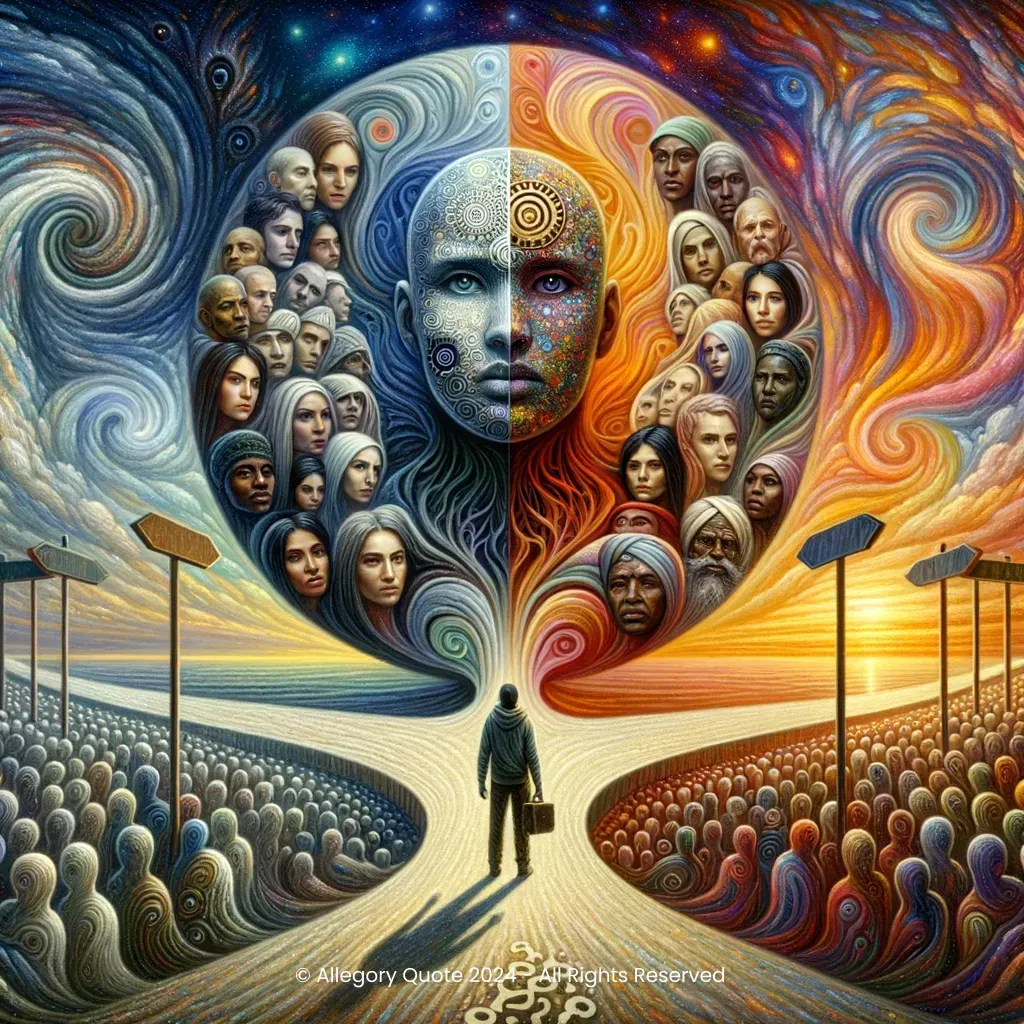
0
0
0
0
- Meaning
- The phrase reflects the confusion and doubt inherent in the human experience when comparing oneself to others. It highlights a philosophical quandary on the nature of sanity, suggesting that our understanding of reality is often colored by personal perception. It invites contemplation on the subjective nature of mental health and societal norms.
- Allegory
- The image elements symbolize the internal conflict faced by individuals questioning their mental state. The figure holding a mirror represents self-reflection, while the diverse faces reflect the perceptions of others. The contrasting paths signify the different choices one can make when navigating their identity and societal expectations, emphasizing the journey of self-discovery and the importance of embracing one's unique perspective.
- Applicability
- This quote serves as a reminder that self-reflection is crucial. In personal life, one can apply its lesson by recognizing that feeling out of sync with societal standards does not equate to madness. It encourages individuals to embrace their unique perspectives and validate their feelings.
- Impact
- This quote has made a significant impact in both popular and academic culture, often invoked in discussions about mental health, identity, and existentialism. It resonates with anyone who has felt out of place or questioned their sanity in light of societal pressures.
- Historical Context
- The phrase likely originates from the early to mid-20th century, during a time of great scientific discovery and social change. It fits within a cultural context that involved questioning established norms and exploring the boundaries of human consciousness.
- Criticisms
- Some criticisms of the phrase could stem from its potential to undermine or trivialize serious mental health issues. Critics might argue that such reflections can lead to stigmatization of those with mental health conditions, or that it risks oversimplifying complicated psychological phenomena.
- Variations
- Variations of the phrase can be found in different cultures that also wrestle with the idea of societal norms versus personal identity. For instance, in Eastern philosophies, there's often a notion of non-attachment to societal judgments, promoting personal awareness over external perceptions.
-

Once we accept our limits, we go beyond them.
-

Learn from yesterday, live for today, hope for tomorrow. The important thing is not to stop questioning.
-

Reality is merely an illusion, albeit a very persistent one.
-
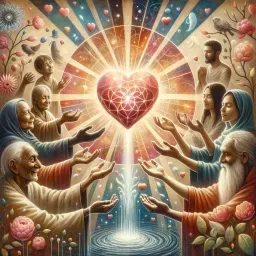
It’s called love. It’s why we do it.
-
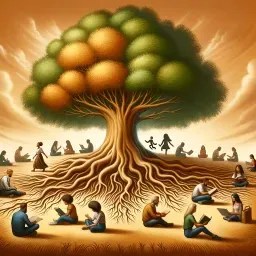
The only source of knowledge is experience.
-

It is the supreme art of the teacher to awaken joy in creative expression and knowledge.
-
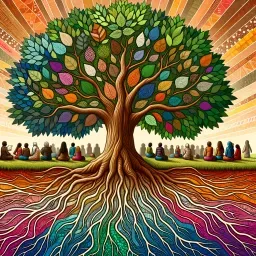
I am part of all that I have found on my path.
-
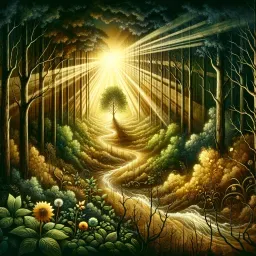
In the middle of difficulty lies opportunity.
-

No problem can be solved from the same level of consciousness that created it.
-
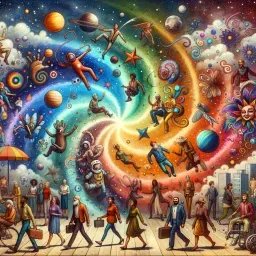
Two things are infinite: the universe and human stupidity; and I'm not sure about the universe.
-

Weakness of attitude becomes weakness of character.
No Comments